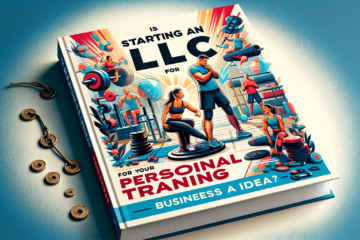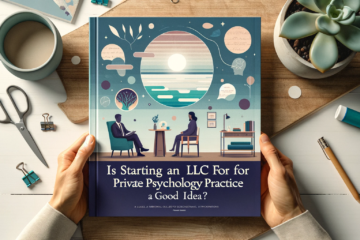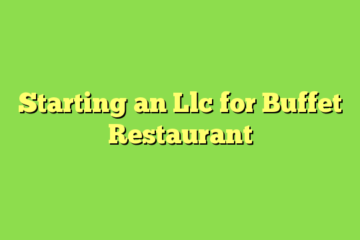Are you considering starting an LLC for your bowling alley? In this article, we’ll guide you through the process step-by-step, from choosing the perfect name for your LLC to managing finances and taxes.
By forming an LLC, you’ll benefit from limited liability and separate your personal assets from your business.
Get ready to make your bowling alley dreams a reality with this practical and concise guide to starting an LLC.
Choose a unique and memorable name for your bowling alley LLC, incorporating creative branding strategies and unique themes. Understand the benefits of forming an LLC, including limited liability protection, flexibility in taxation, potential tax benefits, and establishing credibility and professionalism. Follow a step-by-step guide to filing LLC paperwork, including gathering necessary information and documents, checking state requirements, filling out forms accurately, and paying filing fees. Obtain essential permits and licenses for a bowling alley LLC, such as zoning permits, safety permits, and potentially a liquor license, while familiarizing yourself with specific requirements and starting the application process early.
Choosing a Name for Your Bowling Alley LLC
To begin the process of starting your LLC for a bowling alley, you’ll need to choose a unique and memorable name for your business. The name you select will play a crucial role in attracting customers and setting your bowling alley apart from the competition. To ensure your name stands out, consider incorporating creative branding strategies and unique themes into your bowling alley’s name.
One effective branding strategy is to focus on the experience your bowling alley offers. Think about what makes your business special and try to capture that essence in your name. For example, if your bowling alley has a retro theme, you could incorporate words like ‘vintage’ or ‘nostalgia’ into your name. This instantly gives potential customers an idea of what to expect when they visit your establishment.
Another approach is to highlight specific amenities or features that make your bowling alley unique. If you have state-of-the-art technology or a luxurious lounge area, make sure to include that in your name. This will attract customers who are looking for a particular experience and help differentiate your business from other bowling alleys in the area.
Remember to keep your name concise and easy to remember. Avoid using complicated or obscure words that may confuse potential customers. Instead, opt for a name that’s catchy, memorable, and reflects the personality of your bowling alley.
Understanding the Benefits of Forming an LLC
When starting an LLC for your bowling alley, you’ll benefit from understanding the advantages of forming this type of business structure. One of the main benefits is liability protection. As the owner of an LLC, your personal assets are separate from the business’s liabilities, which means that you aren’t personally responsible for any debts or legal issues that the bowling alley may face. This can provide you with peace of mind and protect your personal finances.
Another advantage of forming an LLC is the potential tax benefits. LLCs have the flexibility to choose how they’re taxed, allowing you to select the most advantageous option for your bowling alley. For example, you can choose to be taxed as a sole proprietorship, partnership, or even as an S corporation. This flexibility can help you minimize your tax liability and maximize your profits.
Additionally, forming an LLC can also provide you with credibility and professionalism. By establishing your bowling alley as a separate legal entity, you show potential customers and business partners that you’re serious about your venture. This can help attract more customers and establish strong business relationships.
Step-by-Step Guide to Filing LLC Paperwork
To file the LLC paperwork for your bowling alley, you’ll need to follow a step-by-step guide.
First, gather all the necessary information and documents, such as your business name, registered agent, and operating agreement.
Next, check your state’s requirements for filing an LLC and obtain the necessary forms. Fill out the forms accurately and completely, providing all the requested information. Be sure to double-check for any errors or omissions before submitting.
Once you have completed the paperwork, you’ll need to pay the filing fees. These fees vary by state but can typically range from $100 to $500. Check with your state’s Secretary of State office for the exact amount and accepted payment methods. It’s important to budget for these fees when starting your LLC.
While you can choose to file the paperwork yourself, it may be beneficial to hire professionals to assist you. An attorney or business formation service can ensure the paperwork is filed correctly and help navigate any complexities that may arise. They can also provide valuable guidance on legal and tax matters pertaining to your LLC.
Essential Permits and Licenses for a Bowling Alley LLC
Obtain the necessary permits and licenses for your bowling alley LLC to ensure compliance with local regulations. When starting a bowling alley, it’s crucial to obtain zoning permits from your local government. These permits ensure that your business location is suitable for operating a bowling alley and that it meets all required safety standards. Additionally, you’ll need to obtain safety permits to ensure that your facility is safe for both customers and employees. These permits cover various aspects such as fire safety, building codes, and health regulations.
In addition to zoning and safety permits, you may also need to obtain a liquor license if you plan on serving alcohol at your bowling alley. The process of obtaining a liquor license can vary depending on your location, but it generally involves submitting an application, paying a fee, and undergoing a background check. It’s important to familiarize yourself with the specific requirements and regulations in your area.
To ensure a smooth and efficient process, it’s recommended to start the permit and license application process early in your planning stages. This will allow ample time for any necessary paperwork, inspections, and approvals. By obtaining the proper permits and licenses, you can ensure that your bowling alley LLC operates legally and in compliance with all local regulations.
Managing Finances and Taxes for Your LLC
Once you have obtained the necessary permits and licenses for your bowling alley LLC, it’s time to focus on managing your finances and taxes. Proper management of your finances is crucial for the success of your business. One important aspect is taking advantage of tax deductions that can help reduce your tax liability. As a bowling alley owner, you may be eligible for deductions related to equipment purchases, maintenance costs, employee wages, and other business expenses. It’s important to keep detailed records and consult with a tax professional to ensure you’re maximizing your deductions and staying compliant with tax laws.
Hiring an accountant can be a smart move to help you manage your finances and taxes effectively. An accountant can assist you with bookkeeping, preparing financial statements, and ensuring accurate tax filings. They can also provide valuable advice on financial planning, budgeting, and cash flow management. By outsourcing these tasks to a qualified professional, you can free up your time to focus on other aspects of running your bowling alley.
When selecting an accountant, consider their experience and expertise in working with small businesses and specifically in the bowling industry. It’s important to find someone you trust and feel comfortable working with, as they’ll be handling sensitive financial information for your business. Investing in professional accounting services can save you time, money, and potential headaches down the line, making it a worthwhile investment for your bowling alley LLC.
Conclusion
Starting an LLC for your bowling alley can provide numerous benefits, such as personal liability protection and flexibility in managing your business. By following the step-by-step guide to filing LLC paperwork and obtaining essential permits and licenses, you can ensure legal compliance and smooth operations. Additionally, managing finances and taxes for your LLC is crucial for long-term success. With careful planning and implementation, your bowling alley LLC can thrive in the competitive industry.
Frequently Asked Questions
How Much Does It Cost to Start an LLC for a Bowling Alley?
Starting an LLC for a bowling alley can be costly. A cost breakdown would include fees for filing documents, permits, and licenses. Funding options could include personal savings, loans, or investors.
What Are the Zoning Requirements for Opening a Bowling Alley?
When opening a bowling alley, you need to be aware of zoning restrictions and building permits. Check with your local government to ensure your location meets the necessary requirements before starting your LLC.
What Insurance Coverage Is Recommended for a Bowling Alley LLC?
When starting an LLC for a bowling alley, it’s crucial to have insurance coverage to protect against liability. Recommended coverage includes general liability, property insurance, workers’ compensation, and liquor liability, among others.
Do I Need Any Specialized Equipment to Operate a Bowling Alley?
To operate a bowling alley, you’ll need specialized equipment like bowling lanes, pins, and balls. Additionally, regular maintenance is required to ensure the smooth functioning of the alley and to keep the equipment in good condition.
Are There Any Specific Safety Regulations That Apply to Bowling Alleys?
To operate a bowling alley, you must adhere to specific safety regulations. Safety protocols include regular maintenance procedures and ensuring that the facility meets fire and building codes. Follow these guidelines to keep your patrons safe.

Aisha Noreen is an owner of a small business with more than 9 years of experience in the marketing industry. With the wisdom of an old soul, she always seeks innovation and mind-blowing ROI techniques. Her unique approach helped many small businesses thrive and she can surprise you in many ways as well. Believe it or not, her energy, passion, and creativity are contagious enough to transform your business and take it to another level.








